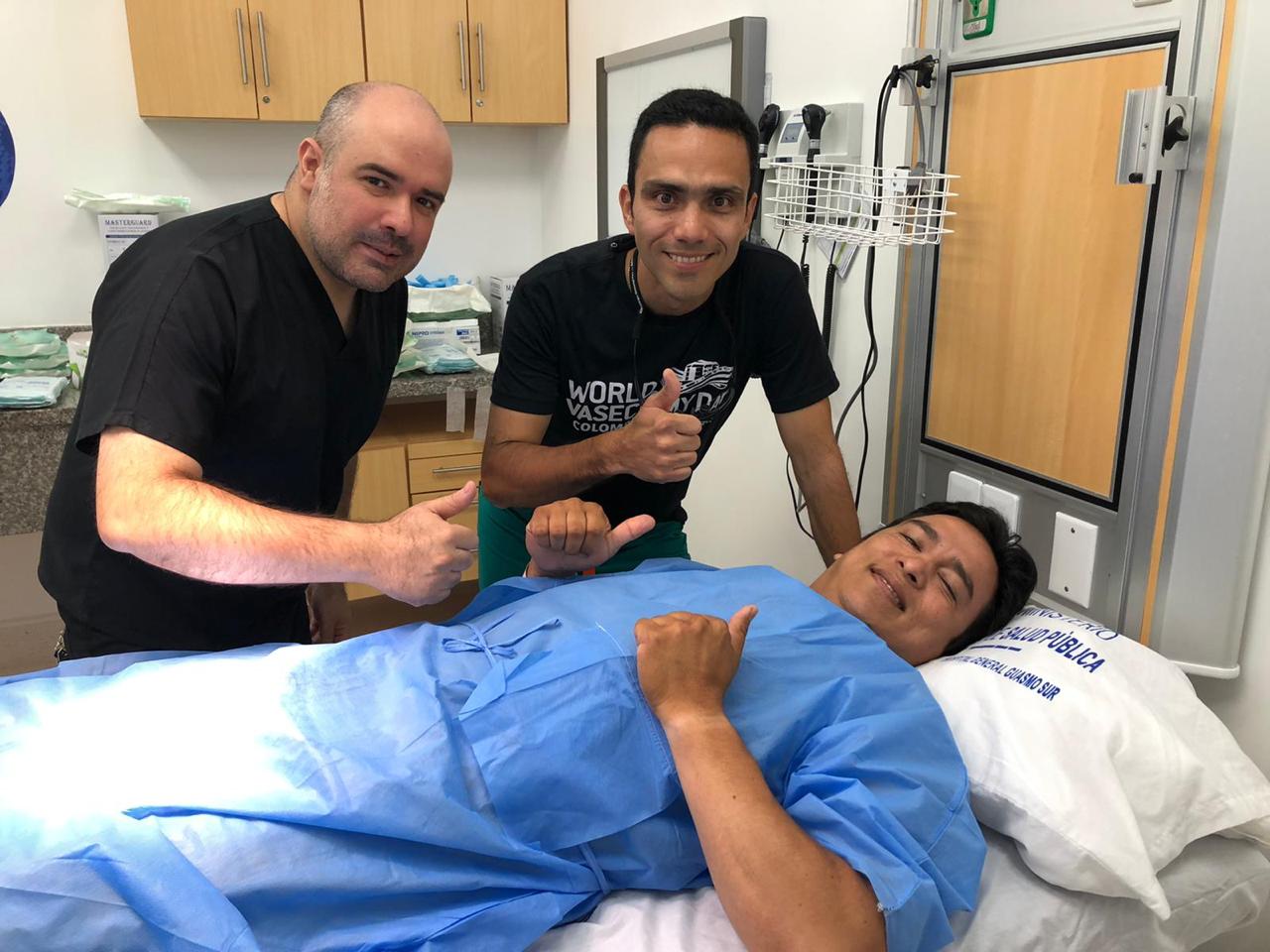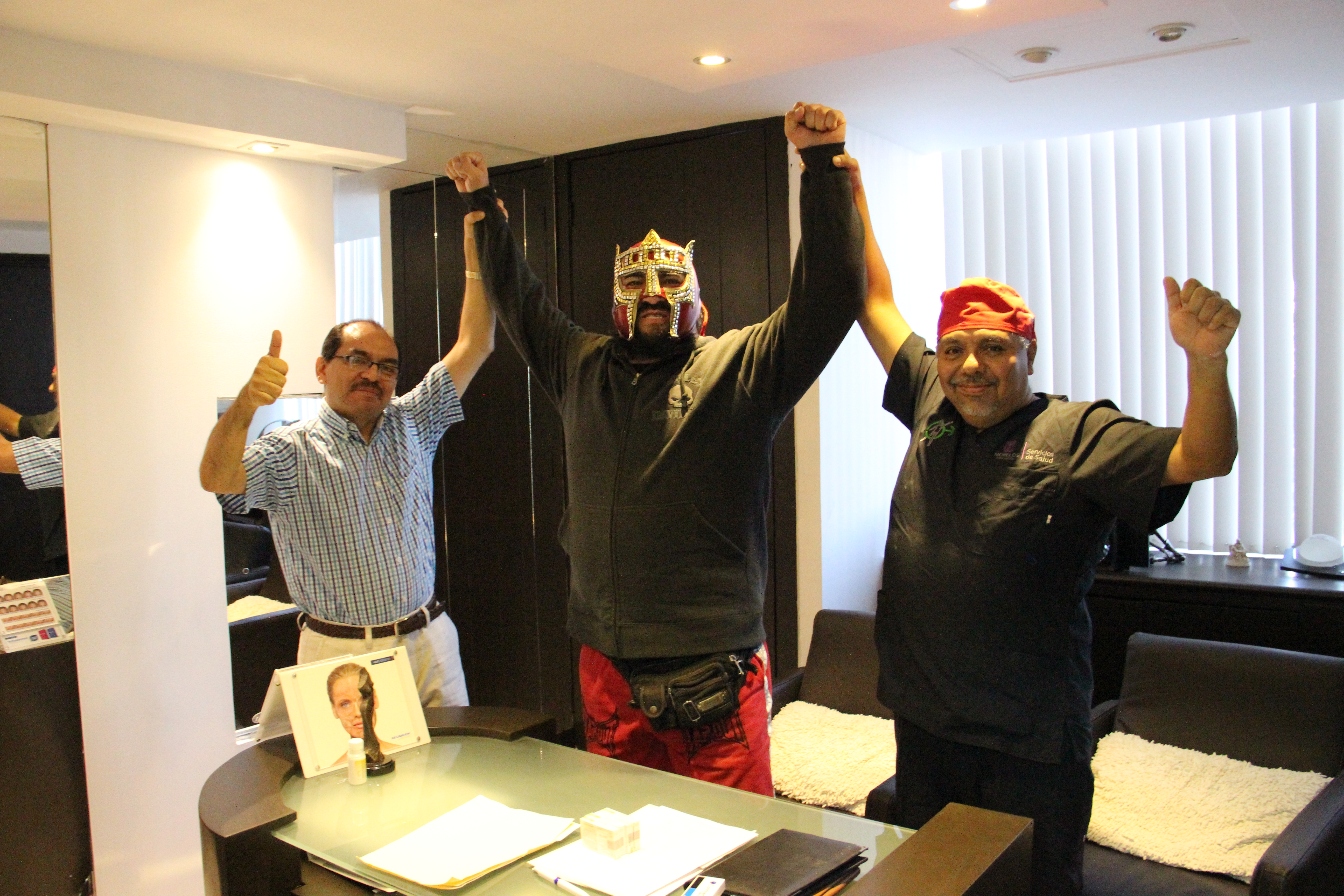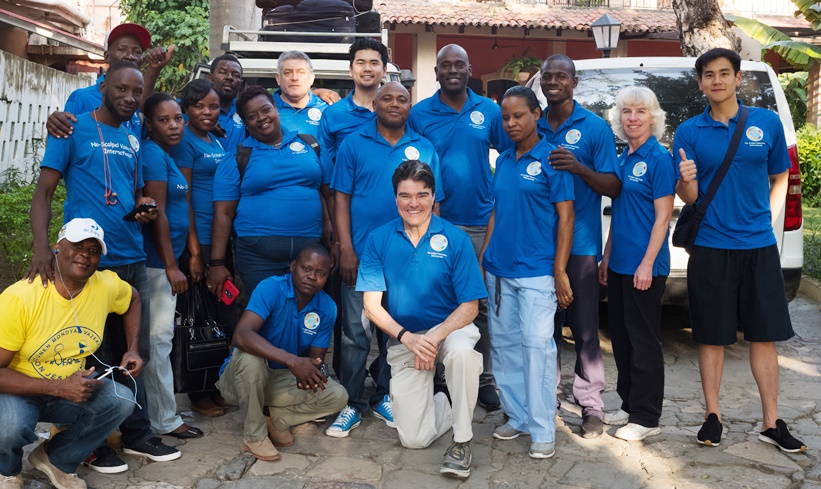
An Act of Love: Vasectomies and positive masculinity
On 18 October 2013, filmmaker Jonathan Stack and urologist/vasectomist Dr. Doug Stein launched the first ever World Vasectomy Day (WVD). This week, 14-20 November 2020, they are celebrating the 8th annual event with close to 1,000 participating physicians in 30 countries committed to doing 10,000 vasectomies – WVD is now the largest male-oriented family planning event in history. Jonathan reveals what motivates them and recounts their inspiring journey so far.

I met Dr. Doug Stein while making a film about my own complex journey through fatherhood. His vasectomy missions to Africa, Asia and the Americas inspired me to both launch a movement and become his 25,000th client.
I had made many films around the world about angry and alienated men who, lacking positive ways to express their innate power and potential, inflict brutality on women, children and animals. In contrast, observing men on the day they make a conscious choice to exit the gene pool reveals a degree of positive masculinity rarely acknowledged.
To transform this positive choice into a global movement, Dr. Stein and I created World Vasectomy Day. The goal was to aggregate individual acts of love into a movement for social good.
It wasn’t easy. Yes, there are places, like New Zealand, where 20% of men choose vasectomies but there are countries where the rate is less than 1%. Over 300 million women have had tubal ligations—six times the number of men having vasectomies, even though tubal ligations are more invasive, costly and risky. While both options fail to prevent pregnancy about 1% of the time, tubal failures can result in ectopic pregnancies, a leading cause of maternal mortality.
You’d think a vasectomy for men who no longer wish to have children would be a no-brainer, but deep-seeded resistance makes the conversation difficult. For example, in the Kiswahili language the same word applies for “vasectomy” and “castration” and while it’s subtler in other places, that pretty much sums up what a lot of people think all over the world. And not just men. Many women would agree with my friend who once suggested, half-jokingly, that it would change a man’s status from alpha male to alpha-lite!
My first official slogan, ‘Balls on the line for Mother Earth’, emphasized the environmental importance of family planning, but population is a complex issue that requires an extremely nuanced conversation. Also, Dr. Stein rightly pointed out that a vasectomy has nothing to do with your balls.
Fear and good information might get a man to wear a condom, but World Vasectomy Day needed compelling stories and there are no shortage of them. There are men who travel hundreds of miles to have the procedure for their wives, and those who do it to help their children emerge from poverty. Regardless of their motivation, every man who rises up to shoulder responsibility for family planning serves as inspiration.


The very first man to have his procedure done as part of WVD was Chris Wiren. Seven years later, he’s still a strong supporter: “I may still be a minority voice, but I’ve never looked back. My wife is grateful and we have never been happier.” George Mbogah from Kenya, with only one daughter, overcame intense social stigma:
“We wanted our daughter to have the life we could not create for ourselves. With just one child that is still possible.”
On World Vasectomy Day, we don’t decide who should or should not get a vasectomy, but we do insist that it be voluntary. Vasectomies are permanent, and as such, are best considered by men whose families are complete. There are men in their 20s who know they don’t want children and men in their 70s who do. I met an Iraq War veteran who asked, “Why am I considered old enough to die or kill for my country, but not old enough to decide about children?” These are tough questions. Doug suggested he freeze sperm in case he changes his mind in the future.
In a letter of support for World Vasectomy Day, Population Matters Patron Paul Ehrlich stated:
“People have asked, can vasectomies really make a difference? Mine made a big difference in my life. I ended up with one child. The exact number Anne and I wanted. Why vasectomies? It is estimated preventing one unintended pregnancy equals 28 lifetimes of reduction, recycling and reusing and 20,000 vasectomies reduces the planet’s carbon footprint one billion tons, enough to reforest a good chunk of Haiti.”
We acknowledge there is a very small chance that a vasectomy can cause lasting pain, and we certainly have great sympathy for these men. A recent study also suggests a possible link between prostate cancer and vasectomy but it’s important to note that there are many other studies that suggest otherwise. Sadly, all methods of birth control come with some element of risk, but that’s precisely what women shoulder for over one third of their lives. Isn’t it time men took on more of that risk?
For all our efforts to inspire men, it wasn’t until we empowered urologists and vasectomists to perform these procedures that our movement took off. Providing vasectomies is not easy or always accepted, but from 14-20 November, there will be over 1,000 skilled doctors from 30 countries participating in what will be the largest male-oriented family planning event in history.
What we learned in creating World Vasectomy Day bodes well for our future. Men reveal the best of who we are when we work together to serve a greater purpose, one that honors ourselves, our families and our future. Long Live World Vasectomy Day!
Jonathan Stack is an Emmy Award winning and two-time Academy Award nominated documentary filmmaker. He founded World Vasectomy Day with Dr. Doug Stein to inspire men world-wide to be part of the most important decision of our lives.
The views expressed in guest blog posts do not necessarily reflect the opinions and position of Population Matters.

